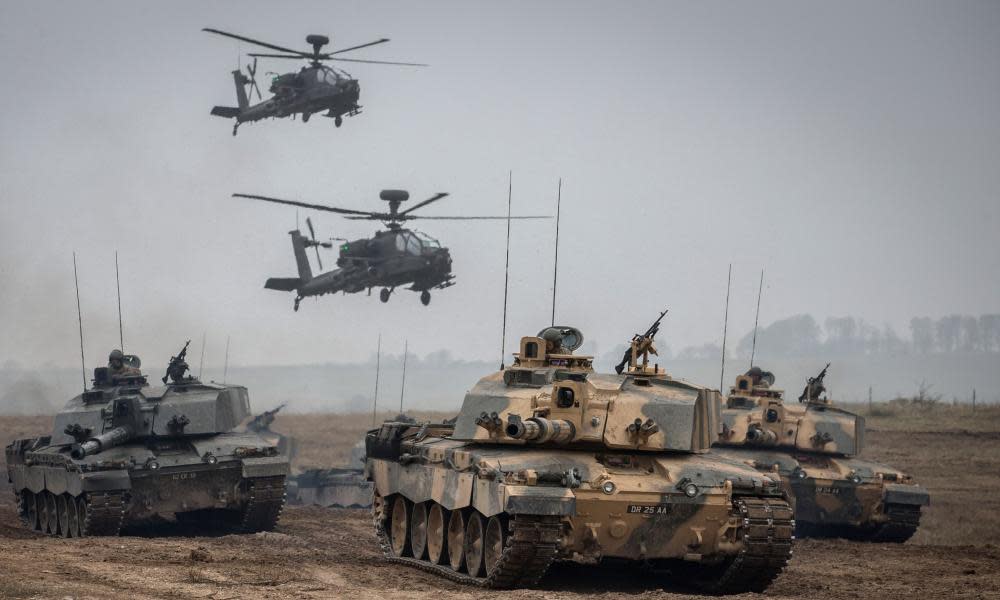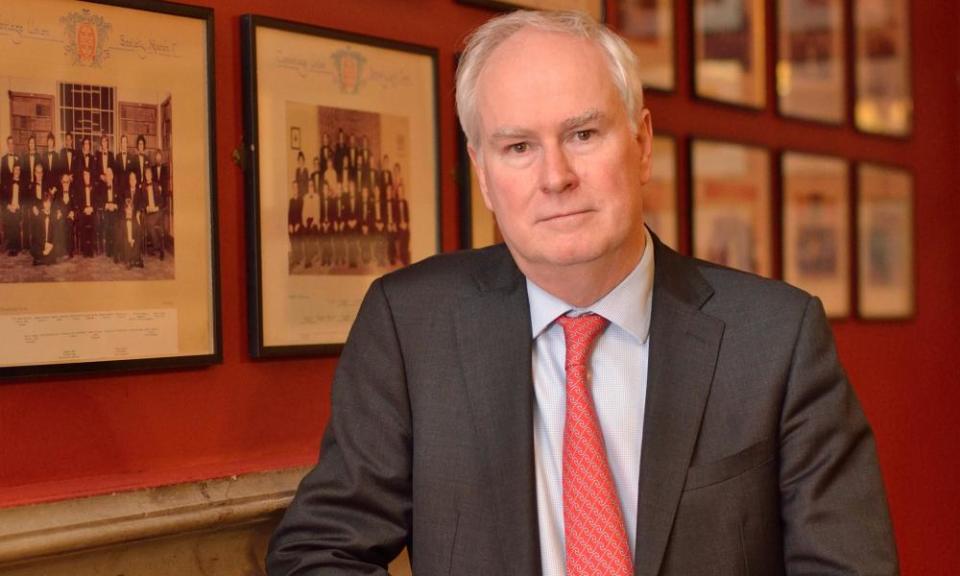PM’s former security adviser warns of Brexit defence cuts

Britain’s plans for a new defence armoury of jet fighters, attack helicopters and maritime patrol aircraft risk being derailed by the economic fallout from Brexit, Theresa May’s former security chief has warned.
Mark Lyall Grant, who served as the prime minister’s national security adviser, said that a Brexit downturn would have a knock-on “impact on UK security” and force the military to rethink ambitious spending projects drawn up in the past two years.
Writing in the Observer, he also warns ministers that they may have to accept some kind of role for the European court of justice (ECJ) to clinch a security deal that allows Britain to benefit from EU programmes.
The prime minister has repeatedly suggested that the ECJ can have no influence in Britain as part of a future relationship with the EU.
There have been warnings that the weakened pound has blown a hole of up to £700m a year in spending plans since the referendum, as expensive military kit is purchased from the US.
Defence insiders are privately warning that currency movements are creating “extra pressures” on a defence budget that was already tight. A Whitehall review of defence spending is under way.
Lyall Grant, who left his post in April, states that Ministry of Defence officials are having to address a funding shortfall, well before a final Brexit deal. He writes that there were several big ticket items, ordered as a result of the 2015 strategic defence and security review (SDSR), that were vulnerable to the pound weakening further.
“National security cannot be divorced from economic security,” he writes. “Put at its most basic, if the British economy suffers as a result of the prospect or reality of Brexit, then our ability to fund the ambitious 2015 SDSR will be put at risk, whether we continue to spend 2% of GDP on defence or not.
“Much of the defence equipment the government plans to buy, including F-35 fighter aircraft, Apache helicopters and maritime patrol aircraft from the US, is priced in dollars.
“Already the MoD is facing a budgetary squeeze as a result of a lower pound and unrealised efficiency savings. The government’s current ‘mini-SDSR’ to address this shortfall will have difficult choices to make, even before the Brexit negotiations conclude.”
MoD insiders point out that, when the spending plans were drawn up in 2015, those involved failed to plan for a Leave vote. A review of defence spending is set to be completed by the end of the year. Options open to defence planners include buying kit over longer periods of time, cutting some programmes or reducing staffing levels.
Senior military figures have also raised concerns over the defence budget. General Richard Barrons, who retired last year, is among those to call for an emergency budget increase.

The respected Royal United Services Institute recently warned that there were “substantial financial implications for defence” as a result of a weakening pound. In August it calculated that the MoD faces extra costs of up to £700m a year in the wake of the Brexit vote and the pound’s fall against the dollar.
“Clearly, the MoD has scope for ‘re-profiling’: extending the period under which equipment will be bought. But the basic consideration remains that, in the decade covered by the current equipment plan, the MoD is likely to have a lot less spending power for important elements of capability than it had before the referendum vote on 23 June [2016],” the institute said.
An MoD spokesman said: “Like any large organisation, we have precautions in place to deal with fluctuating exchange rates, which minimise impact and allow our rising defence budget to continue providing the best equipment for our armed forces.”
While Lyall Grant states he is confident Britain will agree a strong security deal with the EU, he adds that this does not “underestimate the legal complexity of reaching agreement”.
“The government will probably need to be flexible about the role of the European court of justice; and to reassure the commission that any data on EU citizens transferred to the UK will be properly protected,” he writes.
The prime minister has already made ECJ jurisdiction in Britain a red line in the Brexit negotiations, much to the dismay of some ministers and officials.
Lyall Grant calls for continued cooperation on a series of high-profile security programmes after Brexit. “The most important is the network of information sharing and practical measures that help British law enforcement and intelligence agencies to tackle serious organised crime, securing our borders and combating terrorism,” he writes.
“We shall want to be as closely associated as possible with [the EU intelligence agency] Europol on issues such as serious organised crime and cybersecurity; access the Schengen and Prüm databases, which store DNA, fingerprint, vehicle and other personal information, to help keep track of criminals; get traveller information from the passenger name records system; and operate the European arrest warrant.
“All these systems are owned and run by the EU.”
He adds: “I am confident a deal will be reached … our EU partners have just as great an interest in continuing to benefit from cooperation with the UK.
“Our intelligence services are recognised as the best in Europe; we have the largest defence and overseas aid budgets, and we arrest and send back to their own countries eight times as many EU nationals under the European arrest warrant as we get back from the continent.”

 Yahoo News
Yahoo News 
